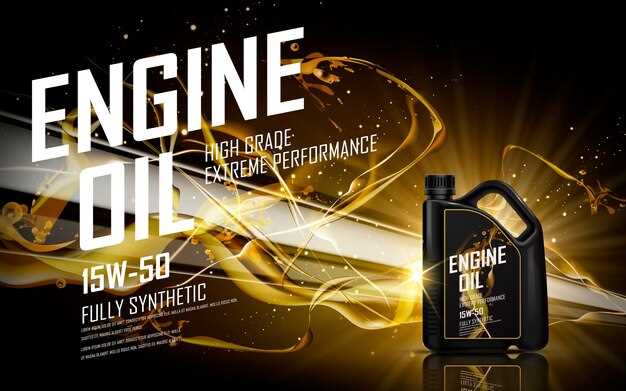
When it comes to maintaining the optimal performance of your Toyota engine, choosing the right motor oil is crucial. The performance, efficiency, and longevity of your vehicle’s engine largely depend on the lubricant you select. With numerous brands available in the market, it can be challenging to identify the best options tailored for Toyota engines.
Quality motor oil not only lubricates the engine components but also plays a vital role in enhancing fuel efficiency and reducing emissions. Different Toyota models may require specific viscosity grades and oil formulations to ensure maximum performance and reliability. Investing in reputable brands can make all the difference in preserving your vehicle’s health.
This article will explore the top motor oil brands specifically recommended for Toyota engines, examining their unique formulations, performance characteristics, and how they can contribute to your vehicle’s overall efficiency and durability. Understanding these key factors will help you make an informed choice and keep your Toyota running smoothly for years to come.
Choosing the Right Viscosity for Your Toyota Engine

Selecting the appropriate viscosity of oil is crucial for maintaining optimal performance and longevity of your Toyota engine. Viscosity refers to the thickness of the oil and its ability to flow at certain temperatures. It is essential to choose an oil that matches your engine’s requirements, as defined in the owner’s manual.
Generally, motor oils come in multi-viscosity options, such as 5W-30 or 10W-40. The first number, followed by the “W,” represents the oil’s performance in cold temperatures, while the second number indicates its viscosity at high temperatures. For Toyota engines, using the manufacturer-recommended viscosity will ensure effective lubrication and protection under varying driving conditions.
For colder climates, a lower initial number helps the oil flow more easily when starting the engine. Conversely, in hotter climates, oil with a higher second number provides better protection against breakdown and ensures that the oil maintains its protective qualities during high-speed driving or heavy loads.
Using the wrong viscosity can lead to inadequate lubrication, increased engine wear, and even engine failure. It’s vital to consider both the climate you drive in and your driving habits when selecting the right oil for your Toyota engine. Always refer to Toyota’s guidelines to make an informed decision that safeguards your vehicle’s performance and longevity.
Comparing Synthetic vs. Conventional Oils for Toyota Vehicles
When selecting motor oil for your Toyota, understanding the differences between synthetic and conventional oils is crucial for optimizing engine performance. Synthetic oils are manufactured using advanced chemical processes, which result in a more uniform molecular structure. This allows for better lubrication, reduced friction, and enhanced protection against engine wear, especially in extreme temperatures.
Conversely, conventional oils are derived directly from crude oil through a refining process. While they provide adequate protection for everyday driving conditions, they may break down more quickly under high-stress situations such as towing or high-speed driving. This can lead to increased engine wear over time and potentially shorten the lifespan of the motor.
Synthetic oils contain fewer impurities compared to conventional oils, which contributes to their superior performance. They offer better stability, meaning they maintain their viscosity across a wider range of temperatures. This is particularly beneficial for Toyota engines, which often operate under varied climatic conditions.
Additionally, synthetic options often include additives that improve fuel efficiency and reduce emissions, aligning with Toyota’s focus on environmentally friendly technology. While the initial cost of synthetic oils is generally higher, the potential for extended oil change intervals and enhanced engine protection can ultimately lead to cost savings.
In conclusion, choosing between synthetic and conventional oils for your Toyota involves considering your driving habits, engine specifications, and personal preferences. For optimal performance and longevity of your engine, synthetic oils are often the recommended choice.
Understanding API Ratings and Their Importance for Toyota Engines

The American Petroleum Institute (API) ratings are crucial indicators of the quality and performance of motor oil. For Toyota engines, selecting oil with the appropriate API rating ensures optimal operation and longevity. The ratings denote how well the oil meets various performance and protection standards set for modern engines.
API ratings consist of two parts: a letter and a service category. The letter indicates the performance level, while the service category specifies whether the oil is intended for gasoline or diesel engines. For example, the API “SN” rating signifies a high-quality motor oil designed for superior wear protection, cleanliness, and resistance to oxidation.
For Toyota owners, using oil that meets or exceeds the manufacturer’s recommendations is essential. An API rating that aligns with Toyota’s specifications guarantees that the oil can effectively lubricate, clean, and protect engine components under various operating conditions. Oils with high API ratings often provide enhanced performance in high-temperature situations and can reduce engine wear, promoting better fuel efficiency.
Additionally, the right API-rated motor oil helps maintain engine health by preventing sludge buildup and reducing corrosion. For those who prioritize the performance of their Toyota vehicles, choosing motor oil with a reputable API rating contributes significantly to overall engine reliability and performance. Always refer to the owner’s manual for the most suitable API rating for your specific Toyota model.
